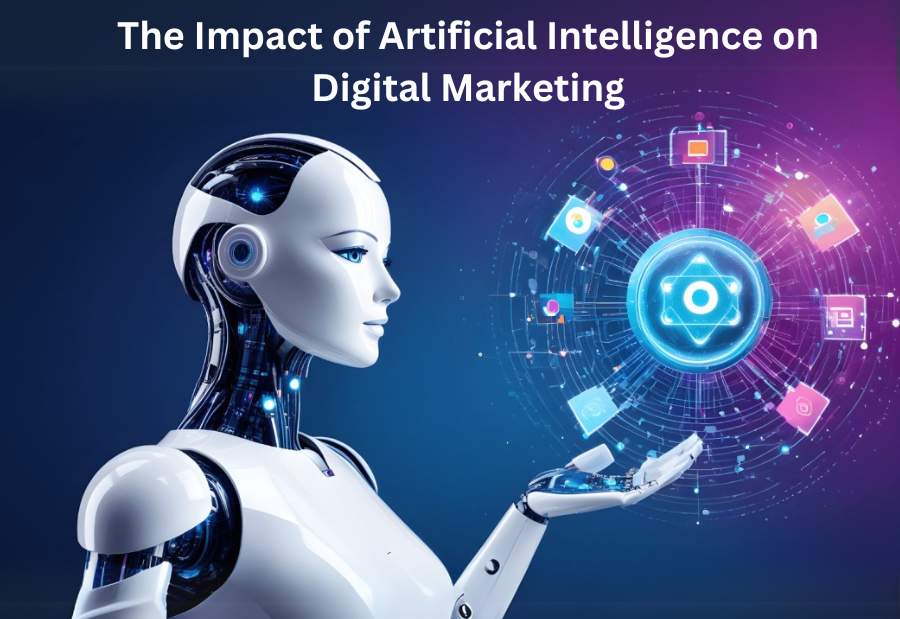
The Impact of Artificial Intelligence on Digital Marketing
The Impact of Artificial Intelligence on Digital Marketing
Artificial Intelligence (AI) is revolutionizing digital marketing by enabling businesses to deliver personalized experiences, optimize campaigns, and enhance customer engagement. By analyzing vast amounts of data, AI empowers marketers to make data-driven decisions that resonate with their audience.
Personalization at Scale
AI allows marketers to analyze user data—such as browsing history, preferences, and purchasing behavior—to create highly personalized content and recommendations. This level of personalization fosters stronger customer relationships and boosts engagement.
Enhanced Customer Insights
AI-powered analytics provide deep insights into customer behavior and preferences. By identifying patterns in user data, AI helps optimize marketing strategies, enabling businesses to make informed decisions that resonate with their audience.
Predictive Analytics for Targeting
AI excels at predictive analytics, allowing marketers to forecast trends and predict customer behavior. This ability helps in refining ad targeting, focusing efforts on high-potential leads, and improving overall campaign efficiency.
Chatbots and Conversational Marketing
AI-driven chatbots are transforming customer service by providing real-time, automated assistance to users. These bots can handle common queries, guide users through websites, and even process transactions, freeing human resources for more complex tasks while improving customer satisfaction.
Content Creation and Optimization
AI tools assist in content creation by generating optimized, user-friendly content. They also help ensure that content is well-structured for SEO, improving search engine rankings and visibility.
Programmatic Advertising
Through programmatic advertising, AI automates the purchase and placement of advertisements, increasing process efficiency and lowering costs. By analyzing real-time user data, AI optimizes ad placement to target the right audience at the right time.
Fraud Detection and Security
AI improves digital marketing security by identifying irregularities and fraudulent activity.
This is crucial for protecting both businesses and customers in today’s increasingly digitized and vulnerable marketplace.
Voice Search Optimization
As voice-activated devices become more common, AI-driven voice recognition technology helps businesses optimize their content for voice searches. This ensures that brands remain discoverable in this growing search segment.
Dynamic Pricing Strategies
AI-powered dynamic pricing enables businesses to adjust prices in real time based on factors like market conditions and demand. This helps optimize revenue, especially for e-commerce platforms, where price fluctuations are common.
Augmented Reality (AR) in Marketing
AI, in collaboration with AR, is transforming online shopping by offering users immersive experiences, such as virtual product try-ons. This reduces uncertainty in the purchasing process and enhances the overall customer experience.
Conclusion
Artificial Intelligence is transforming digital marketing by enabling personalized experiences, enhancing customer insights, and optimizing campaigns. While AI offers numerous benefits, it is essential to address ethical considerations and ensure that AI complements human creativity and strategy. By leveraging AI responsibly, businesses can stay competitive in the dynamic digital landscape.